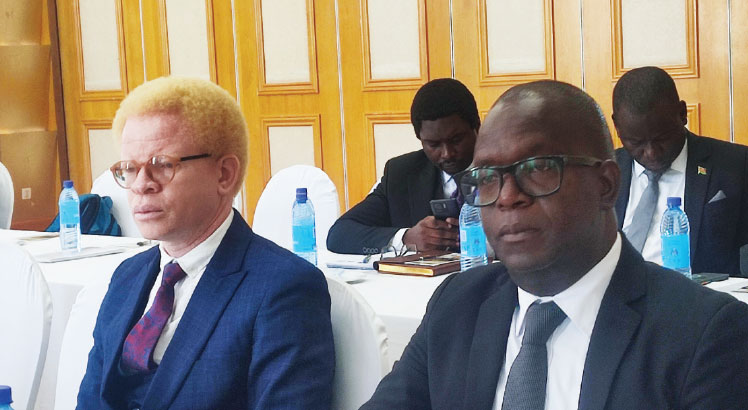Never-ending hitches and inefficient service delivery at the Department of Immigration and Citizenship Services and the Directorate of Road Traffic and Safety Services have robbed public coffers of billions in non-tax revenue, it has emerged.
The situation emanates from Road Traffic’s failure to issue driver’s licences and Immigration’s inability to process passports largely due to contractual complications, lack of consumables and mishandling of information communication technology infrastructure.
The ineptitude at the Malawi Government’s two non-tax revenue cash cows has sent service delivery into dustbins of mediocrity, making it harder for foreign direct investment, goods and people to flow.
The Nation analysis shows that revenue collection at the two agencies has been dwindling over the past couple of years.
At Road Traffic, according to the 2023 Malawi Annual Economic Report, the department collected K13.7 billion in the 2020/21 fiscal year, but revenue fell to K13 billion in 2021/22.
In the 2022/23 fiscal year, Road Traffic collected K10.7 billion as of December 31 2022, although that was three months before the end of the financial year.
In the report, Road Traffic cites problems with Malawi Traffic Information Systems (Maltis) as hampering their operations, especially in 2022/23 fiscal year.
Reads the report in part: “Non-linkage of Traffic Maltis and the core Maltis continues to affect revenue collected from fines and penalties as offenders are not necessarily obliged to service their dues.
“Challenges in monitoring and enforcing levies to be collected from [issuing] companies, number plate importers, and embossers as well as certificates of fitness from the private garages.”
The ineptitude is worse at the Department of Immigration where The Nation analysis indicates that revenue collection through the issuance of Malawi passports has drastically gone down to nearly negligible levels comparatively.
For example, the department told Malawi Broadcasting Corporation in December 2021 that in that year, it issued 53 000 passports, with the figure rising to 68 000 in 2022.
But a well-placed Immigration source said yesterday that between January and December 2023, the department only issued just around 5 000 passports, which is only around seven percent of the previous year’s output, dragging revenue down.
On average, a single passport costs about K115 000 since normal service passport is at K90 000, express passport attracts K160 000, replacement stands at K150 000 and international truck drivers’ passports costs K60 000.
This means that in 2023, Immigration collected about K575 million from passport issuance against roughly K7.8 billion in 2022 and around K6 billion in 2021.
In the midst of the poor performance in revenue, the Immigration Department last week suspended issuance and receiving of passport applications due to ICT-related technical hitches.
The temporal suspension, which is running into the second week now, has also affected the permits system, another important income stream whose collapse could also hit overall revenue the department collects for government.
All this is happening at a time Capital Hill is struggling to fund several ministries, departments and agencies, sometimes leaving them for months without operational funding with councils being the hardest hit.
In an interview yesterday, Immigration spokesperson Wellington Chiponde justified the shutdown, saying their system is undergoing extensive maintenance works.
“The maintenance work will require a little more time,” he said.
But Chiponde refused to comment on the declining revenue and the number of passports that were printed last year.
He said: “I can only urge passport applicants not to panic as we are committed to completing these maintenance works with speed.
“We remain committed to keeping the public informed once the maintenance works are completed.”
Road Traffic spokesperson Angela Makwecha was yet to respond to our questionnaire as we went to print at 8pm yesterday.
But Malawi University of Science and Technology economics lecturer Dr. Bertha Bangara said the challenges the two institutions have a long-term negative impact on revenue and the national budget.
She said: “The issues of revenue need to be taken seriously and government must revisit the operations of the two key non-tax revenue generators.”
Domestic revenue for the 2022/23 financial year was initially projected at K1.6 trillion comprising K1.5 trillion in taxes and K100.7 billion in non-tax revenues.
During the Mid-Year Budget Review in Parliament, Minister of Finance and Economic Affairs Simplex Chithyola Banda revised upwards the domestic revenue due to underperformance registered on non-tax revenues.
Bangara, who is also Economics Association of Malawi vice-president, said it is clear that government is failing to collect revenue because of system failures that can be fixed.
She said: “These system failures are holding these big government institutions at ransom. To me I feel like these problems at Immigration and Road Traffic were created by someone or it is benefiting someone.
“Let’s try our home-grown solutions. It’s a Malawian system and why can’t we let Malawians develop a system done here?These systems keep on failing.”
Parliamentary Committee on Transport and Public Infrastructure chairperson Enock Phale also expressed worry over the challenges Road Traffic is facing with Maltis.
“We need to quickly find solutions to resolve the problems,” he said.
Road Traffic is struggling with an upgraded Maltis following a prolonged stalemate between government and the consulting firm from South Africa.
On the other hand, problems at the Immigration Department started soon after Attorney General Thabo Chakaka-Nyirenda ordered the cancellation of the department’s contract with TechnoBrain in December 2021 purportedly because it was flawed and expensive.
The post The price of inefficiency appeared first on The Nation Online.
 Moni Malawi
Moni Malawi 

